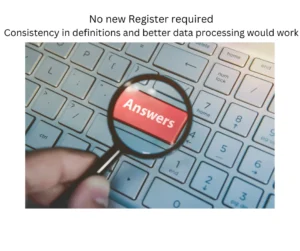
Better data processing, not new legislation
Trawling through reports from many sources. This included going through serious case reviews, in case I missed a genuine case where a home-educated child had not been known to services. I am reassured that it is not the current law at fault. It is not the current law that is letting down children time and time again.
It is individuals who have not been appropriately trained. It is under-resourced and underfunded children’s services. It is unacceptable caseloads. It is difficulty in staff retention. It is inefficient databases. It is inconsistency of approach. It is inconsistency of definitions. It is too many unconnected lists, but a failure to put in place effective data sharing protocols. It is recording what is going wrong, but ineffective mechanisms to ensure the correct action, occurring at the optimum time.
The Children’s Wellbeing and schools bill known by me as the unhappiness bill, does not address these issues. It may, if it remains as drafted make these known problems worse. Generating more data for no real purpose, when the systems mismanage the current data will not help children or their families. It will just add to a system that is already struggling.
The reports and information I have gone through demonstrate, it is not a lack of data leading to children slipping through the gaps in services. It is not a need for a consistent identifier/s as children already have many identifying numbers assigned to them. They even have this thing called an identity in itself. It is different services not effectively communicating with each other. It is data not being efficiently transferred. It is data that can be and should be shared not being. It is information that is received but not acted upon effectively under the existing law.
If a parent withdraws (deregister’s) from a school then the local authority already knows about that child’s education status. They also have a record of the child’s key details as the school must complete the REQUIRED deletion return under The School Attendance (Pupil Registration)(England) Regulations 2024. This return includes several bits of information. It includes the Child’s name in full. It includes their address. It includes the full name of the parent that the child normally lives with and that parent’s address. It includes at least one parent’s contact number. The return also states the reason the child has been deleted from their school roll. It does not prevent the school flagging sfaeguarding concerns. It does not prevent the local authority from making appropriate enquiries. If school’s and local authorities are not completing the return process correctly, put in punitive measures for them to comply. No need to put additional unnecessary burden on parents through the Children’s Wellbeing and Schools bill.
The children’s commissioner has not hid her views on home education. A few points made in Children Missing Education:The Unrolled Story, September 2024 such as
“There are significant inconsistencies in the use of the term “children missing education” between local authorities, which can lead to children falling through the gaps. Different local definitions of this term hamper any attempts to collect reliable data on children missing education and make it more difficult for local authorities to work cross-border to identify and support children missing education. In some areas, a child must have been missing for as much as two months before the local authority opens a child missing education” from page 7.
I agree with. Our own Freedom of Information requests also showed significant inconsistencies between local authorities.
Addressing this point which would safeguard children almost immediately, does not require this bill. It does not require new legislation. It requires better data processing, consistent application of definitions. s436A Education Act 1996 already requires local authorities to identify children not receiving suitable education, and the statutory guidance and s437(1) Education Act 1996 require local authorities to act. It requires effective data-sharing protocols and services to be resourced sufficiently to carry out their roles effectively.
Make sure to find us on social media.
Staffordshire website design and website SEO by Fellowship Studios.